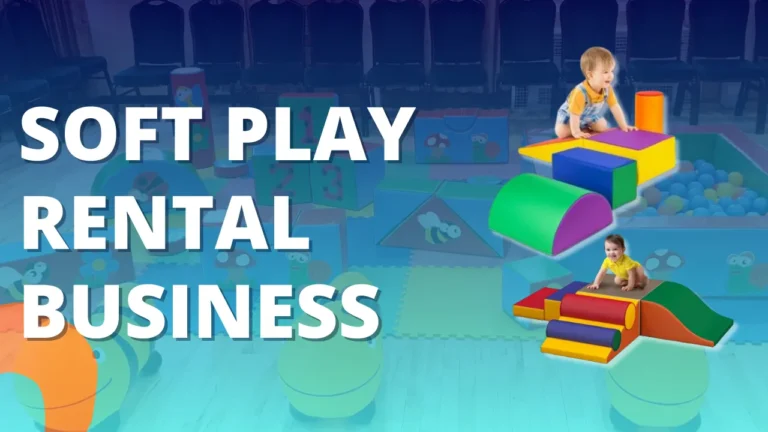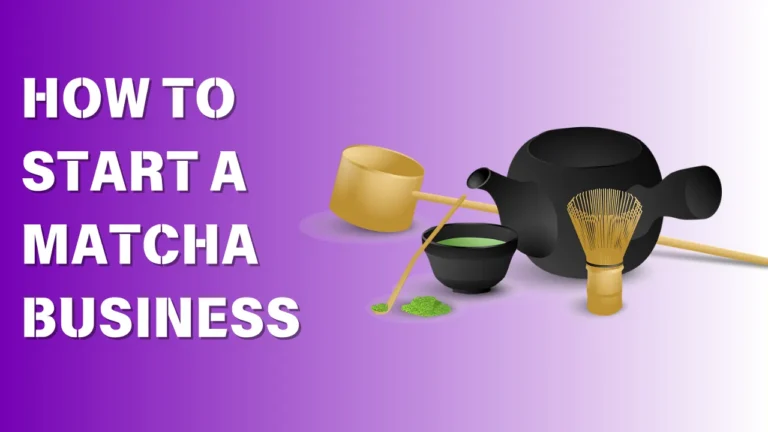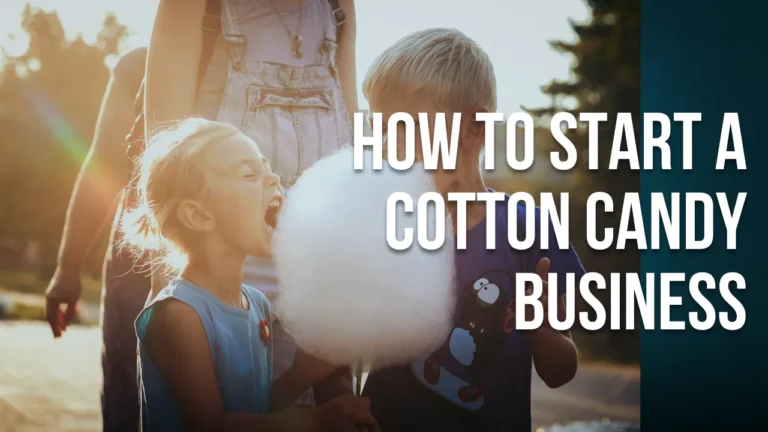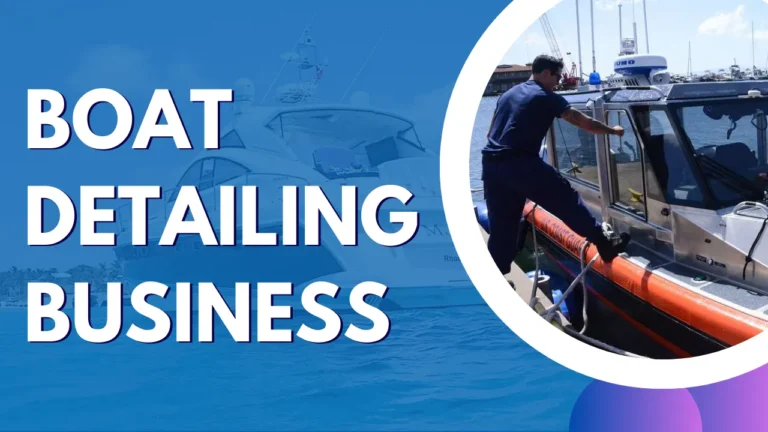Want to start a drone spraying business? If so, then you are in the right place. Providing crop spraying service is a profitable idea to make a successful business in the agricultural field.
With the growing technology, spraying with drones is not new, and it is one of the most effective methods to spray crops accurately and efficiently,
According to Grand View Research In 2022, the US agricultural drone market was valued at USD 347.9 million, expected to grow at a CAGR of 22.8% between 2023 and 2030.
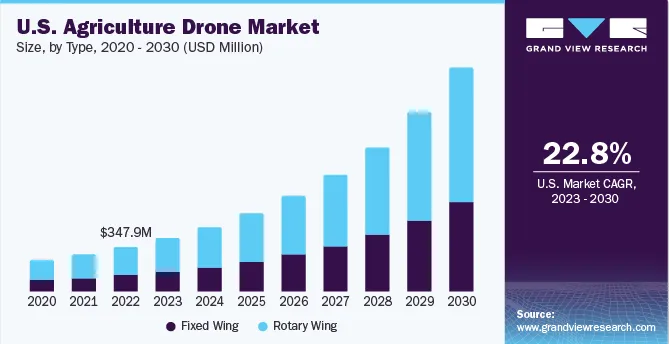
In this guide, we’ll discuss the following:
- What you need to get started
- Steps to start the business
- Marketing and Promotion
If you are interested, read the complete guide to learn the step-by-step process, such as market research, business planning, training, certification, registering the business, buying equipment, marketing or promotional strategies.
By following the steps, you can learn from scratch. So, let’s get started.
What is drone spraying?
Do you know? The drone spraying process is the use of Unmanned aerial vehicles (UAVs) armed with sprayers. This high-tech method is known as drone spraying.
As it gains popularity in modern agriculture, it also transforms traditional crop spraying.
It’s like precision agriculture takes to the next level by increasing accuracy, efficiency, safety, etc.
What’s the big deal, you ask? Well, it’s a game changer in agriculture. It reduces the cost of manual spraying and also provides many benefits.
Drone spraying is a popular, high-demanding, and evolving technology for farming.
Here are some benefits of drone spraying:
- Increase efficiency and productivity
- Improve crop health and yield
- Reduction in environmental impact
- Increased security for workers
- Access to remote areas
- Data collection and analysis
- Cost-effective compared to traditional methods
Cons of drone spraying:
- Technical limitations: Battery life, weather dependence, mechanical failure.
- Regulation and legal hurdles: Complex regulation, privacy concerns, liability issues.
- Environmental impact: Potential for drift, risk of spills and accidents, etc.
Where is the drone sprayer used?
Drone spraying has a wide range of applications in agriculture, forestry, construction, public health, and more.
If you’re planning to start a drone spraying business, you’ll need knowledge of the different types of spraying services available.
- Crop-specific applications: herbicides, pesticides, fungicides, precision fertilization
- Specialized services: organic farming, forestry, livestock, data collection
- Emerging applications: bio-solutions, pollination, frost protection, disaster relief
Choose a niche before starting the drone spraying business, specialize in a type of service, and prepare the resources accordingly; choose a niche considering location, target market, drone type, and expertise.
Spraying pesticides, herbicides, and fertilizers using drones is most efficient, cost-effective, and less time-consuming compared to traditional methods.
- Crop spraying
- Precision spraying
- Infrared spraying
- Aerial application
This method can be particularly beneficial for farmers with large areas of land, where drone spraying proves to be more effective and efficient than manual spraying.
Depending on the crops, land size, and desired accuracy, farmers can choose the spraying method that best suits their needs, whether it be drone spraying or traditional methods.
Watch the YouTube video to understand how the drone spraying process is.
How much does it cost to start a drone spraying business?
To start, you must buy a drone, spraying equipment, chemicals, and other accessories.
Launching requires around $50k to $ 100k+, depending on your business plan, location, legalities, and services the company offers.
- Drone: $5,000 – $20,000+ (depending on size, range, spraying capacity, brand)
- Spraying equipment: $1,000 – $5,000 (nozzles, pumps, tanks)
- Chemicals: Crops requirements, on the type and quantity needed
- Accessories: $500 – $2,000 (batteries, chargers, safety gear, spare parts)
The estimated cost is not only the total expenses to launch, but also training, certification, legalities, insurance, marketing, and advertising important factors.
When estimating, focus on both initial and ongoing expenses.
Initial cost:
- Drone purchasing
- Spraying equipment
- Chemicals to spray
- Require accessories
- Business registration
- Training and certification
- Marketing
- Insurance
- Website – for online presence
- Staff hiring
Ongoing expenses:
- Maintenance and repair
- Equipment upgrades
- Insurance recurring
- Legal renewal fees
- Ongoing marketing
The given cost provided only an estimate, but depending on the specific choice, the expenses can vary; get professional guidance before preparing for financing.
How to Start a Drone Spraying Business?
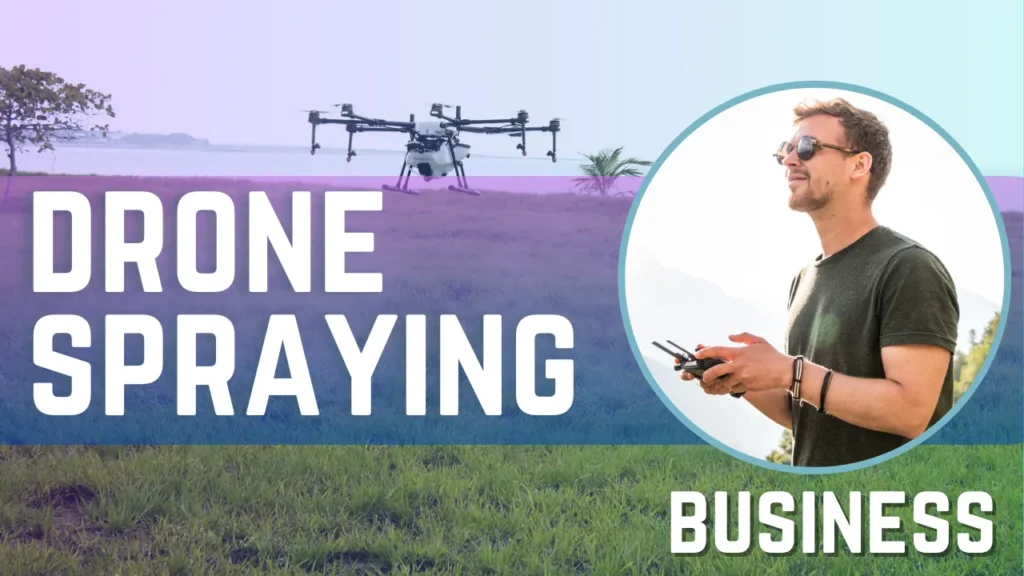
1. Conduct market research
The drone spraying business is a lucrative idea, but before starting, you need proper market research, planning, skill & experience are essential.
Find out a target market that you want to target, what the people need & what their demand is, and identify your customer for preparing a business plan with proper strategies.
Your target market can be:
- Large farms
- Specialty crops
- Organic farms
- Tech-friendly farmers
- Eco-conscious farmers
- Hard-to-reach fields
- Expensive labor farms
The best way to enter this drone spraying industry is to research, focusing on a specific niche (agricultural) and the type of service you want to provide your customer.
When you do market research, then you must have this question in your mind.
- Who are your customers?
- What are their needs?
- What are their pain points?
- How will you reach them?
- What is the cost to reach them?
Conduct competitive analysis to understand the market competition, how your competitors charge for service, service facilities, pricing, accuracy, etc.
Join the social media community, and find industry-related profiles, groups, and specific communities to gather and learn about the market properly (Facebook, Instagram, YouTube, and TikTok are the best platforms).
- Facebook discussion group: Join the community
2. Training and expertise
For setting up a successful drone spraying business, having the proper skills, experience, and expertise in various fields is important, including (regulatory needs, technical knowledge, business management, agriculture, pesticides, safety protocols, etc).
So before starting, get proper training for every field, mainly flying drones, and gain knowledge in your niche (agricultural spraying) and develop your business skills.
Regulatory Needs:
- Understand the need for UAS regulations (FAA Part 107)
- By following the pesticide regulations and obtaining necessary licenses.
- Insured your business and secure obtaining liability insurance.
Technical Skills:
- Develop drone operation skills, including piloting, pre-flight checks, safe landing, and emergency procedures.
- Learn about different types of sprayers and their calibration, as well as the operation process.
- Know the use of mapping software for flight path planning and data analysis during spraying.
Business Management Skills:
- Develop a business plan and understand how to conduct market research.
- Master in financial management principles.
- Providing good customer service with the right pricing structure.
- Learn the skills to build a team or a skilled staff.
- Implement effective marketing strategies.
Agricultural Knowledge:
- Understanding agricultural practices and crop care to tailor services to specific client needs.
- Gaining knowledge about different types of pesticides and herbicides, their effectiveness, and potential environmental impact.
Building Expertise:
Before starting your business, consider:
- Proper training: Enroll in drone training programs and obtain relevant certifications. You can explore both online and offline sources to get training.
- Hands-on experience: Gain experience through internships, volunteer work, or working with established drone spraying businesses.
- Mentorship: Seek guidance and support from experienced professionals in the field.
- Continuous learning: Stay updated on industry trends and advancements through professional development courses and conferences.
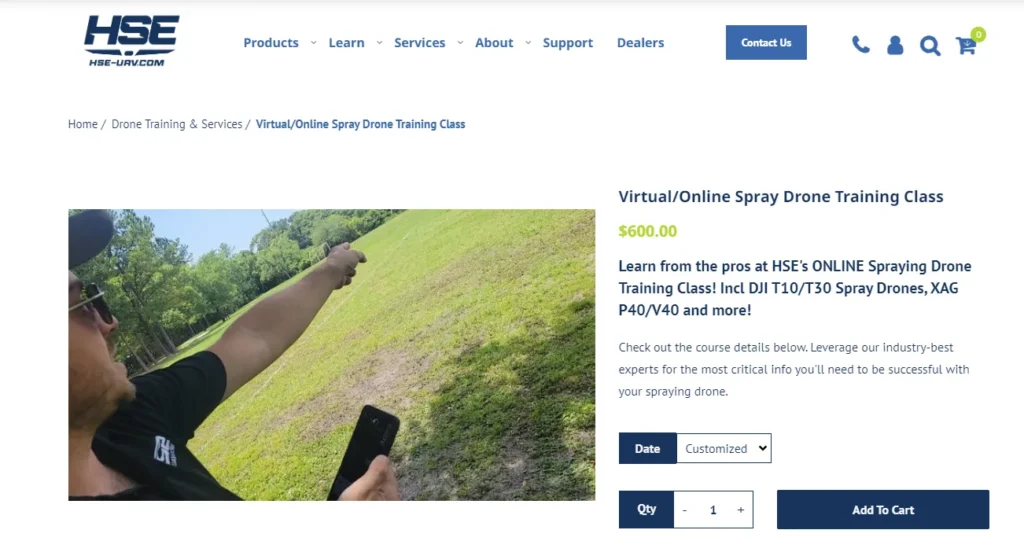
Here are some resources to help you learn about drone spraying:
- Online courses and training programs (Drone Ag Academy, UAV Coach, Agri Spray Drones Knowledge Hub).
- Websites and blogs (dronedeploy.com, dronedj.com, agaviation.org).
- Youtube Channels (UAV coach, DJI agras, PrecisionHawk, Drone Ag).
3. Choose a business name
Choose a simple drone spraying business name to express your style and brand identity and introduce your service to potential customers.
When you choose a name, make sure that name is related to your service keyword, including “drone spraying,” catchy, short, easy to pronounceable, or easy to remember.
Here are some points to find the best name:
- Pick a unique or uncommon name.
- When naming your business, skip the numbers, underscores, hyphens, or fancy symbols.
- Look for a friendly name online; easy to remember and simple to spell.
- Go for something unique that makes you different.
To protect your business name, register it as an entity name, trademark, DBA, and domain name. Each registration protects your name differently and might be required by law.
Reference – Read the complete guide to choose a name (SBA).
Once you decide on a suitable business name, buy a domain using this name because you need to create a website for online marketing.
Register a domain name:
A domain is a website address and the URL of the webpage.
- For example, if your business name is (Drone Sprayer Pro), then the domain is (DroneSprayerPro.com)
- The (.com) is the extension of the domain, also you can choose (.org, .net, .us, .co).
- Register it from a domain provider such as (GoDaddy or NameCheap).
- Visit the website, check the domain availability, include the payment method, and register.

4. Agricultural drone business plan
Do you know how beneficial having a business plan is? A one-page plan or step-by-step plan is a roadmap for success.
To reach the goal and ultimate destination, write a well-defined business plan including all essential factors, such as your goals, service, target market, pricing, financing, marketing, etc.
A business plan should include:
- Executive summary: Briefly introduce your business concepts (for agriculture, pest control, etc), and mention your target market, goal, and overall business operations.
- Company description: Business name, mission, vision, value, team expertise, and experience in drone technology.
- Market analysis: Write about the current market growth, future growth potential, trends, and existing competitors (strengths and weaknesses).
- Service plan: Focus on providing services such as (crop spraying and pesticide application), writing the use of different types of drones and equipment, etc.
- Marketing strategy: Identify your target market to create an effective marketing strategy to generate leads or attract clients, focusing on online and offline marketing.
- Operation plan: Logistics, drone maintenance, safety protocols, regulatory compliance, transportation, pesticide sourcing, etc.
- Financial plan: Create a proper financial plan including your startup costs, ongoing expenses, revenue model (projecting growth over 3-5 years), as well funding requirements.
Resources for writing a business plan:
- Small Business Administration (SBA)
- Bplans is a website that provides templates, sample plans, and expert advice.
- LivePlan: It is a popular business plan software (offers templates, financial tools, and other features).
Consult experienced business professionals or consultants to refine your plan. Their insights can be invaluable in ensuring the effectiveness of your business strategy.
5. Business Formation and insurance
To legally operate a drone spraying business, you must obtain business licenses, permits, and other necessary certifications.
Specific requirements will depend on the size of the business you operate, the location of your business, and applicable laws and regulations.
One of the first steps is choosing a suitable business structure. This decision will affect liability, taxes, and other legal matters.
Common options include:
- Sole proprietorship
- Partnership
- Limited liability company (LLC)
- Corporation
Once you’ve chosen the business structure, register your business as per the requirements of state, local, and federal governments.
Each structure has its advantages and disadvantages, so carefully decide.
If you are not familiar with the process, then consult a legal advisor or get expert guidance for taking the right step for your business.
The legal need varies from location to location to meet the specific criteria related to safety practices and environmental standards. You can check your local authorities also.
Another important aspect is obtaining an Employer Identification Number (EIN) from the Internal Revenue Service (IRS). An EIN serves as a unique identifier for your business when reporting taxes and hiring employees.
Apply for business insurance:
Having insurance for your cleaning business is a smart move; it is a financial safety net in case something unexpected happens that could cost you money or put you at risk.
Every business, big or small, needs insurance. It’s a must-have.
- General liability
- Workers’ compensation
- Business interruption
- Product liability
Insurance is like a safety net that helps you bounce back financially if something unexpected, like a fire or theft, messes with your business.
It’s just good sense to have that backup plan.
Licensing and certification
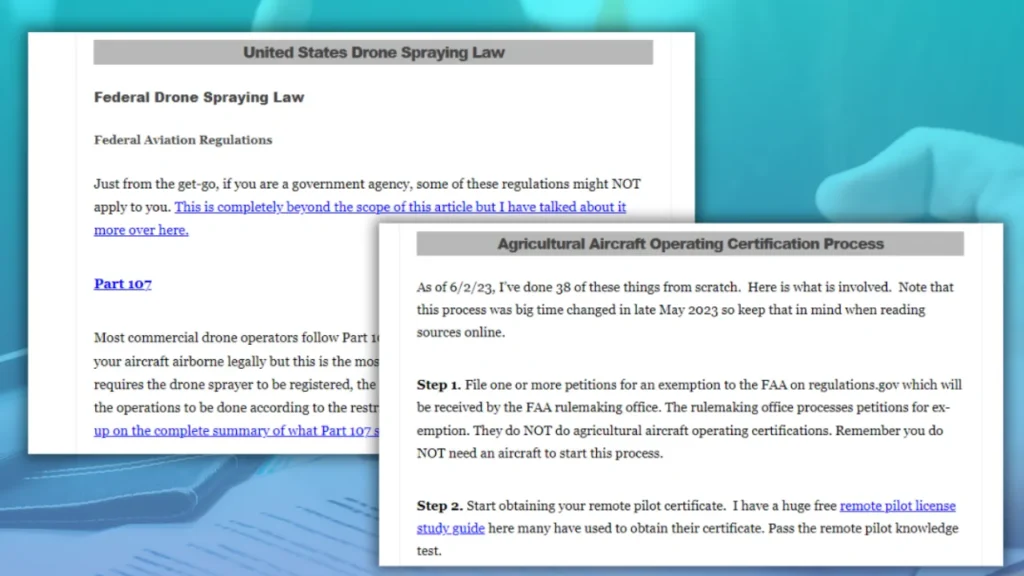
You need to obtain the license and certifications depending on local, state, and federal regulations, as well as need to follow specifically FAA regulations.
We can provide the basic information. However, you must consult a legal attorney or government agencies to meet all the requirements.
Federal (FAA):
- Part 107 Remote Pilot Certificate: Basic drone operator license.
- Drone registration: All drones over 0.55 lbs. must be registered with the FAA.
State requirements:
- Aerial applicator license: Required to apply pesticides from the air (drones included).
- Additional permits/licenses: Varies by state, and may include pesticide permits, business licenses, and insurance.
Follow the local regulations:
- Check local ordinances: Some cities/regions have specific drone regulations.
Resources: To find more useful information, visit the sources.
- FAA Drone Regulations: https://www.faa.gov/uas
- National Agricultural Aviation Association: https://www.agaviation.org/
- State Licensing Agencies (USDA website): https://www.nifa.usda.gov/
6. Obtaining equipment and supplies.
You need to buy the essential equipment and supplies to launch the drone spraying business. Invest in the best quality and premium accessories to make your project more powerful.
Equipment for drone spraying business:
Drones: It is the most important equipment, buy a drone that should be specifically designed for spraying. Check the drone tank capacity (10 to liters) and per-day spraying capabilities.
Here are some tips for making a great decision:
- Consider the company you are buying from.
- Consider the cost when buying.
- Payload and spraying capacity
- Flight time and battery life
- Regulations (should approved by FAA)
- Get recommendations from existing sprayers
- Shop around to get the best price on a drone.
Before purchasing a drone, ensure it’s approved by the FAA. Visit the official website download the document and check the FAA-approved drone models. (regulations.gov)
DJI, AgrowDrone, BROUAV, Gaia, HSE, Hylio Inc., XAG, Yamaha, etc, are some approved companies.
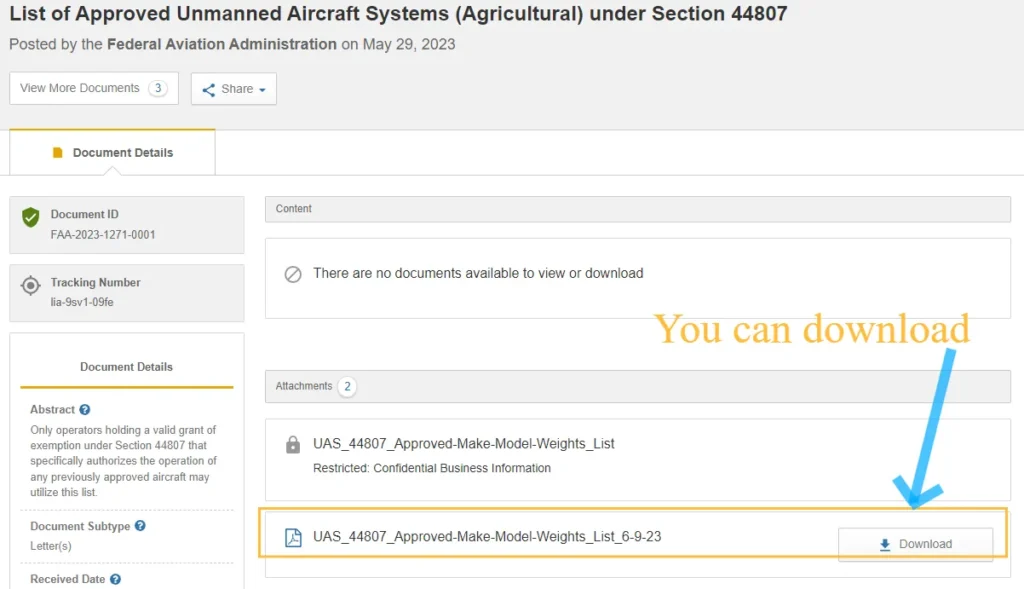
- Remote controllers: Devices for piloting and controlling the drones.
- Batteries: High-capacity batteries for extended flight time.
- Charging station: Equipment for charging drone batteries.
- Spraying modules: Attachments or systems for delivering chemicals.
- GPS systems: Navigation and mapping tools for precise spraying.
- Cameras and sensors: To monitor crop health and conditions.
- Landing pad: A designated area for takeoff and landing.
Supplies and consumables:
- Pesticides and herbicides: Chemicals for pest and weed control.
- Fertilizers: Nutrient supplements for crops.
- Maintenance tools: Tools for routine drone maintenance.
Safety equipment:
- Protective gear: Personal protective equipment for operators.
- Fire extinguishers: Safety equipment in case of emergencies.
7. Marketing and promotion
Marketing and promotion are the primary parts of business success and growth, so you need the right marketing strategy to generate leads or clients for spraying services.
If you want to promote your service with the right marketing strategy and want to build a strong brand in the market, the first thing you have to do is;
- Understand your target customer.
- Know their preferences and need
- Create a market plan to reach out to them.
Here are some steps or tips you can follow the market your business in the market.
- Choosing a name logo
- Build a website for an online presence
- Search Engine Optimization (SEO
- Utilize social media platforms (Facebook, Instagram, Twitter)
- Network with local farmers, large farm owners, specialty crop growers, organic farmers, etc.
- Attend industry trade shows and events
You may also like:
Frequently Asked Questions (FAQs)
Is the drone spraying business profitable?
Yes, the drone spraying business can be profitable. The US agricultural drone market is growing with a CAGR of 22.8% (Grand View Research), so it is a potentially profitable venture.
How Much Does Drone Spraying Cost?
The drone spraying cost typically ranges from $11 – $14 per acre (Source: farmprogress.com); depending on area size, drone sprayer, and pesticides, the cost can vary.
How Many Acres Can A Drone Spray In A Day?
A drone sprayer can spray around 20-100 acres daily; the drone payload capacity, flight time, field size, layout, and spraying methods will depend.
How Efficient Is Drone Spraying?
Drone spraying offers increased coverage area, reduced labor costs, improved accuracy, and a lower environmental impact, making it an efficient solution for crop protection.
Conclusion
The demand for drone spraying is rapidly growing; if you want to enter this business, this can be a profitable opportunity, and this is the right time to start.
However, being an entrepreneur comes with its share of ups and downs. With proper planning, guidance, and expert support, you can start your own spraying business.
Hopefully, the simple guide is helpful and informative and provides value. If you have any questions or doubts about the business idea, comment below.
Disclaimer: This guide is only for educational purposes – focus on providing a steps guide, not intent to give legal or financial guidance; before starting, conduct proper research, get expert guidance, meet existing business owners, and then start.
Reference – During research – visit the webpage to get detailed information.
- https://jrupprechtlaw.com/drone-sprayer/
- https://www.arizton.com/market-reports/agriculture-drone-market
- https://www.grandviewresearch.com/industry-analysis/us-agriculture-drone-market-report
- https://croplife.org/wp-content/uploads/2020/03/Drones_Manual.pdf
